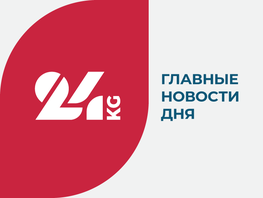The Ministry of Energy of Kyrgyzstan proposes to revise heating and hot water tariff. The ministry submitted the draft resolution of the Cabinet of Ministers «On amendments to the resolution of the Cabinet of Ministers «On approval of the medium-term tariff policy of the Kyrgyz Republic for heat energy and hot water supply for 2021-2025» dated September 30, 2021 No. 193 for public discussion.
In order to reduce subsidies and gradually achieve self-sufficiency in the energy sector, as well as introduce a fair approach to tariff setting, the draft resolution proposes to introduce a social standard for monthly thermal energy consumption for residential premises with a total area of up to 80 square meters (with an increase in the current tariff for heating energy by 25 percent), the tariff for hot water supply is equated to the social norm.
For citizens who exceed the social norm, tariffs will be applied at the level of the cost of heat energy for each square meter of excess. It is proposed to set a tariff above the social norm at the level of the cost price of heat energy.
In addition, in order to simplify the calculation of tariffs for hot water supply, it is proposed that the tariff for heat energy in the form of hot water by metering devices and according to consumption norms for all consumer groups should be set based on the tariff for heat energy in the form of hot water.
As the background statement says, the goals and objectives of the draft document are to improve the main performance indicators of the energy sector in the context of a shortage of money, introduce the principles of self-sufficiency of the energy sector, a fair approach to tariff setting, including the introduction of a social consumption norm, reducing the amount of subsidies from the state budget, and also reducing the volume of cross-subsidies between different categories of consumers.
The Ministry of Energy recalled that by resolution of the Cabinet of Ministers of September 30, 2021, the medium-term tariff policy for heat energy and hot water supply for 2021-2025 was approved. It provides for setting of tariffs for all consumer groups until 2025 with an annual adjustment of 10 percent for the population.
In November 2023, changes were made to the tariff policy, according to which tariffs for industrial, budget and other consumers were increased to the cost level. At the same time, socially oriented tariffs for heat energy and hot water supply for the population were retained:
- For heating purposes — 1,248 soms per gigacalorie;
- For the purpose of hot water supply (for thermal energy in hot water) — 1,120 soms per gigacalorie;
- For hot water supply (for hot water according to metering devices) — 72 soms per cubic meter;
- For hot water supply (for hot water at the rate per one person) — 345 soms per month.
* These tariffs apply to all heat supply enterprises, with the exception of local private heating boiler houses that supply heat to newly commissioned multi-storey buildings, which sell thermal energy at a tariff equal to cost.
At the same time, the cost of one gigacalorie of heat energy today in the context of heat supply enterprises is as follows:
- Branch of Electric Stations OJSC Bishkekteploset — 2,918.92 soms per gigacalorie;
- Branch of Electric Stations OJSC Osh Heating and Power Plant — 5,933.28 soms per gigacalorie;
- Bishkekteploenergo — 5,896 soms per gigacalorie;
- Kyrgyzteploenergo — 7,780.34 soms per gigacalorie;
- Osh Teplosnabzheniye municipal enterprise — 5,993.46 soms per gigacalorie;
- Boiler house of VDNKh Bishkek FEZ — 5,798.37 soms per gigacalorie;
- Boiler house of Tokmok Zhyluuluk municipal enterprise — 8,071.89 soms per gigacalorie.
«Tariffs for heat energy and hot water supply for household consumers are set at a level significantly lower than the actual cost of heat energy and hot water supply, which leads to the need for direct subsidies from the state budget, as well as cross-subsidies between different groups of consumers. For 2023, heat supply enterprises have been allocated 3.1 billion soms of subsidies to cover the costs of selling heat energy and hot water to the population,» the document says.





